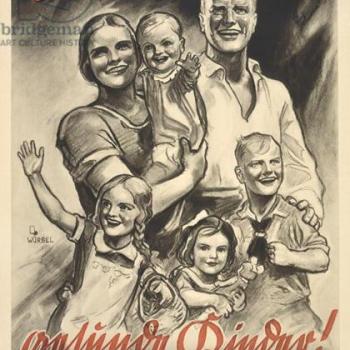Men are no more rapists in their natural state than I am asexual in my natural state.
~ Hannah
As a young conservative evangelical, I was taught that I had to dress modestly to protect them from “stumbling” into sexual sin, and that it was natural for a guy to keep pushing for sexual favors, and it was my job to say no. I was taught that men were visual and easily aroused, and that men think about sex constantly. I was taught that men were to pursue and women were to be pursued, and that I must protect my virginity until marriage, because otherwise I would have lost one of the greatest tools I had to bring a guy to the alter.
And then I got married.
I quickly found that none of this advice actually matched my lived experience. For example, there were times when Sean preferred to think about economics, read a book, or play a computer game. Sometimes I would put on something revealing and affect a seductive manner and he would totally miss it. Now don’t get me wrong, Sean was plenty into sex, but because he wasn’t constantly governed and dictated to by his sexual urges and desires in the way I’d been taught to expect him to be, I thought there was something wrong. Not with him, though. With me.
I mean, the problem was clear. I wasn’t sexy enough. I was too chubby, or too tall, or too busty, or too something. Any time Sean wasn’t as obsessed with sex as I’d been raised to think he ought to be, my self confidence took a hit. Because of this, it was years before I really truly believed Sean when he insisted that he was perfectly satisfied with how I looked.
Beyond just that, because I had been taught that men were to pursue and women were to be pursued, I didn’t initiate sex, even when I was in the mood. Instead, I would try to hint at my interest. I suppose I thought he might feel emasculated if I was the one pursuing, or if I was interested and he wasn’t, and so I generally waited for him to initiate (dropping hints and hoping he would take them, of course). Furthermore, because I expected him to initiate I assumed that when he didn’t that meant he wasn’t interested, and that it was therefore pointless for me to initiate anyway.
Over time, I became aware of something that completely surprised me. Quite simply, Sean told me little by little that he had the same internal thoughts and feelings that I did—he too assumed that if I was interested I would initiate, and thus interpreted lack of initiation on my part as lack of interest, and he too assumed that when I didn’t initiate or wasn’t interested that meant he wasn’t sexy enough.
That’s right, readers, my very masculine husband was self conscious about whether or not he was sexually attractive. And more than that, my very masculine husband very much enjoyed being sexually pursued.
I was completely floored. I had been taught that God had designed men to pursue and women to be pursued, but what I learned was that Sean liked being pursued just as much as I did. He wanted to be wanted. It’s hard to emphasize just how huge this realization was. It turns out that Sean held the same insecurities about his looks, the same desire to be admired and told how attractive he was, and the same desire to be pursued that I’d been led to believe characterized women but not men.
Through all of this I also had to come to terms with my own sexual desire. I’d been taught that sex within marriage is a beautiful thing, but after being carefully conditioned to say “no no no,” it took time to become comfortable with my body saying “yes yes yes.” For a time, every time I was sexually forward I felt like there was something wrong with me, like I was reading the lines of the wrong script. After all, he was supposed to be pursuing and I was supposed to be demurely accepting.
The longer I’m married the more I think that men and women aren’t really all that different, really, when it comes to things like sex and body image. The longer I’m married the more I’m convinced that the idea that “men are from Mars” and “women are from Venus” when it comes to relationships and intimacy does significantly more harm than good. These sorts of reductive dichotomies erase the huge variation that exists within each gender when it comes to things like relationships and sex.
Beyond all of this, handing couples stereotypes rather than urging them to see each other as individuals sets them up for mis-communication and obstacles to full bonding and intimacy. Operating off of the stereotype I’d been taught men fit led me to misunderstand Sean’s needs and desires even as I thought I was doing everything necessary to meet them, and it also led me to fail to communicate my own. The reality is that operating off of stereotypes leads us to overlook who people are as individuals.
Men are not some confusing mystery to be unlocked. I don’t need scads of advice manuals on how to understand the male psyche or the way men think. All I need is to remember that Sean is, well, a person. An individual, you know, like me. It’s really not all that complicated.














